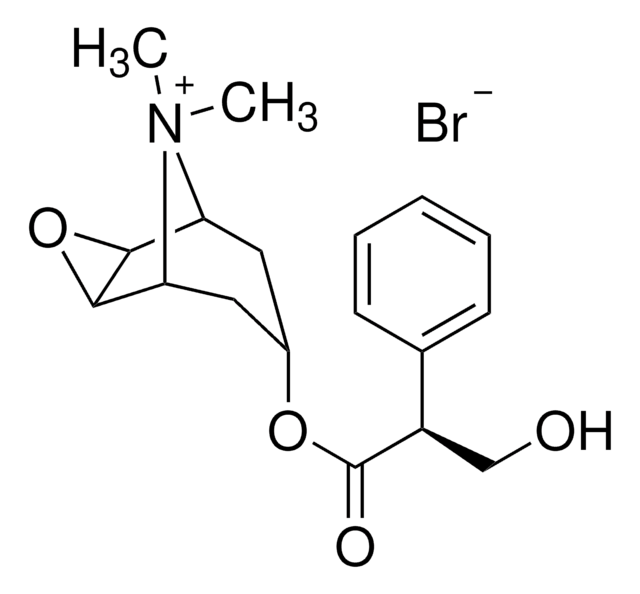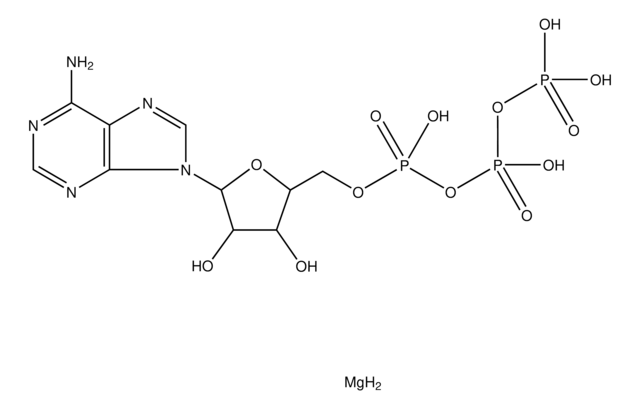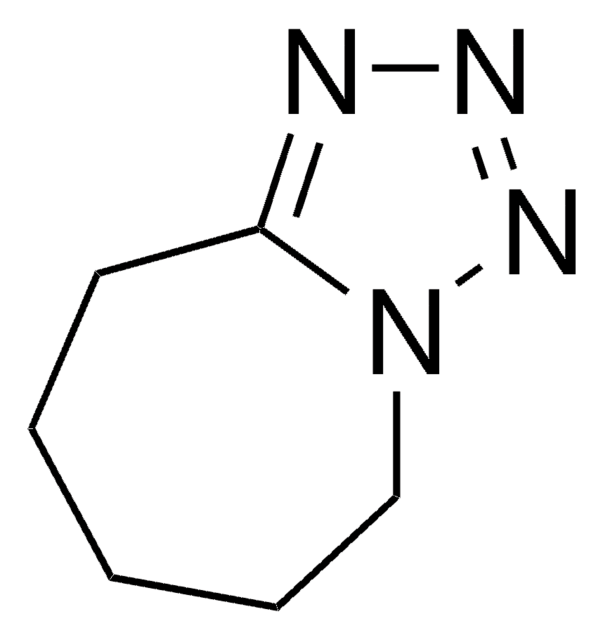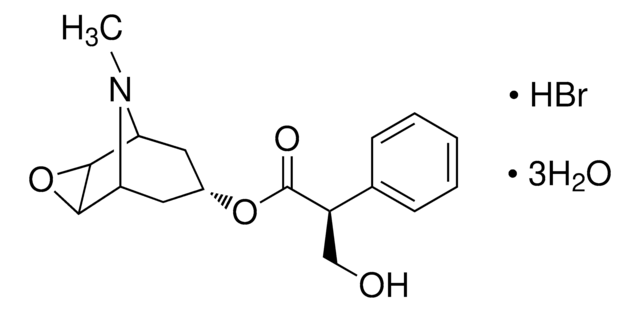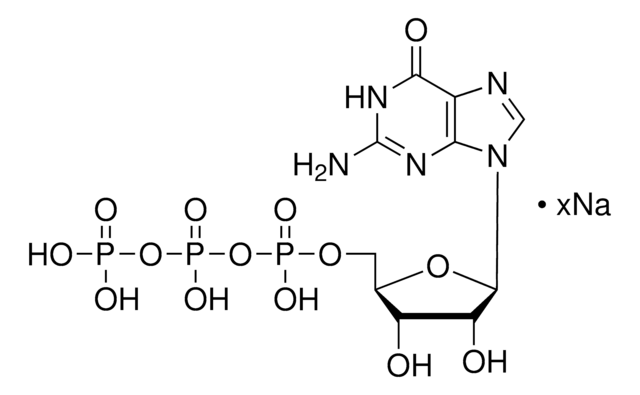S2250
(−)Scopolamine methyl nitrate
Sinónimos:
Hyoscine methyl nitrate, Methscopolamine nitrate
About This Item
Productos recomendados
Quality Level
solubility
water, high purity: 50 mg/ml
SMILES string
[O-][N+]([O-])=O.C[N+]1(C)C2CC(CC1C3OC23)OC(=O)[C@H](CO)c4ccccc4
InChI
1S/C18H24NO4.NO3/c1-19(2)14-8-12(9-15(19)17-16(14)23-17)22-18(21)13(10-20)11-6-4-3-5-7-11;2-1(3)4/h3-7,12-17,20H,8-10H2,1-2H3;/q+1;-1/t12?,13-,14?,15?,16?,17?;/m1./s1
InChI key
BSQIVYOSLFLSGE-UXXRHRDBSA-N
Gene Information
human ... CHRM1(1128) , CHRM2(1129) , CHRM3(1131) , CHRM4(1132) , CHRM5(1133)
Application
Biochem/physiol Actions
signalword
Danger
hcodes
Hazard Classifications
Acute Tox. 1 Dermal - Acute Tox. 2 Inhalation - Acute Tox. 2 Oral
Storage Class
6.1A - Combustible acute toxic Cat. 1 and 2 / very toxic hazardous materials
wgk_germany
WGK 3
flash_point_f
Not applicable
flash_point_c
Not applicable
Elija entre una de las versiones más recientes:
¿Ya tiene este producto?
Encuentre la documentación para los productos que ha comprado recientemente en la Biblioteca de documentos.
Nuestro equipo de científicos tiene experiencia en todas las áreas de investigación: Ciencias de la vida, Ciencia de los materiales, Síntesis química, Cromatografía, Analítica y muchas otras.
Póngase en contacto con el Servicio técnico